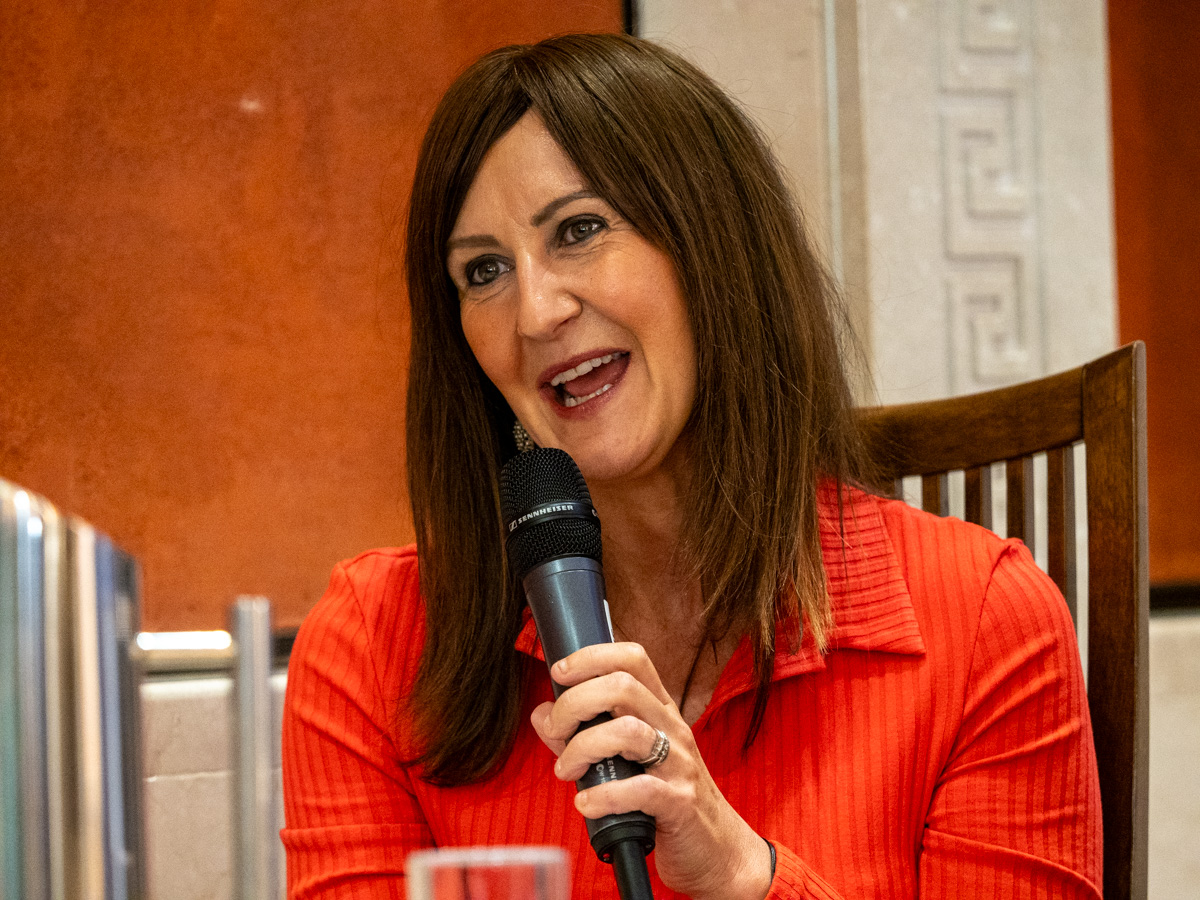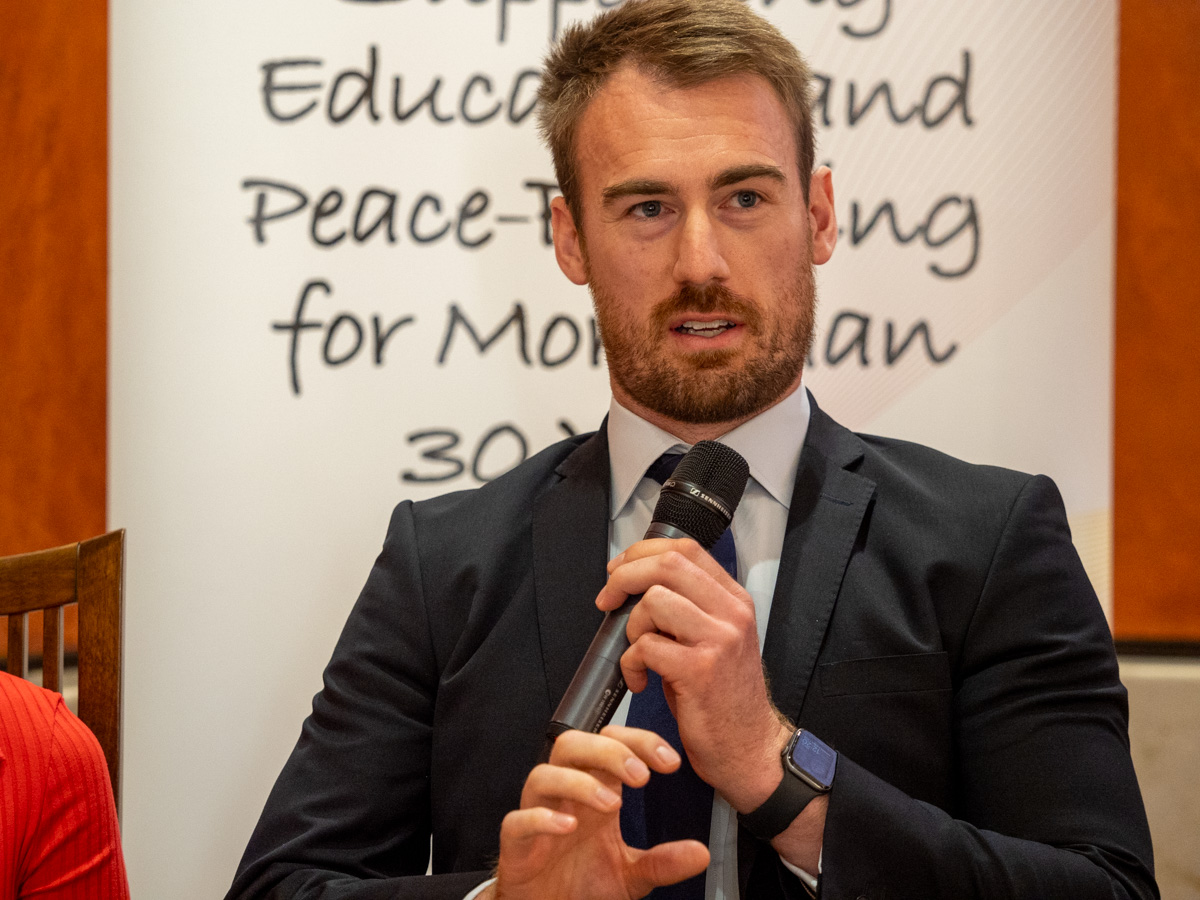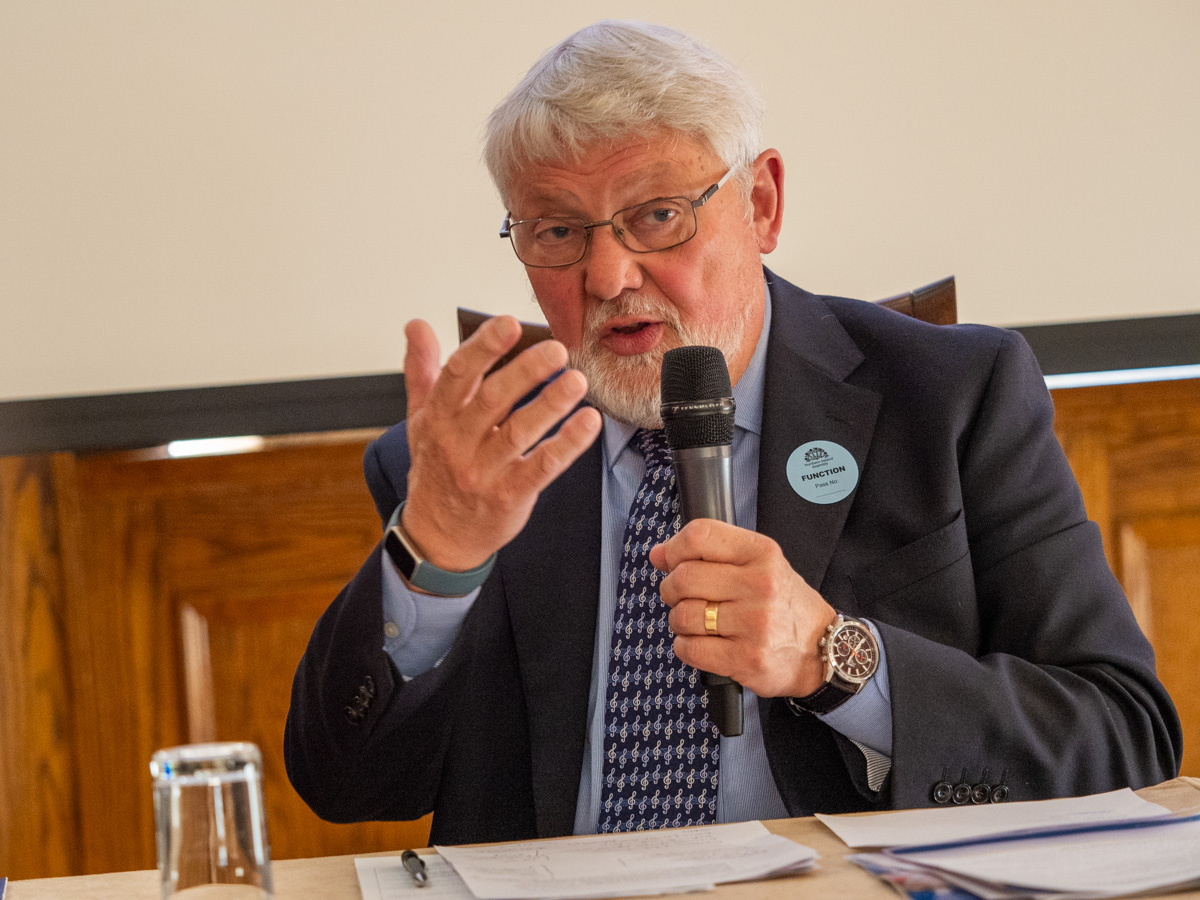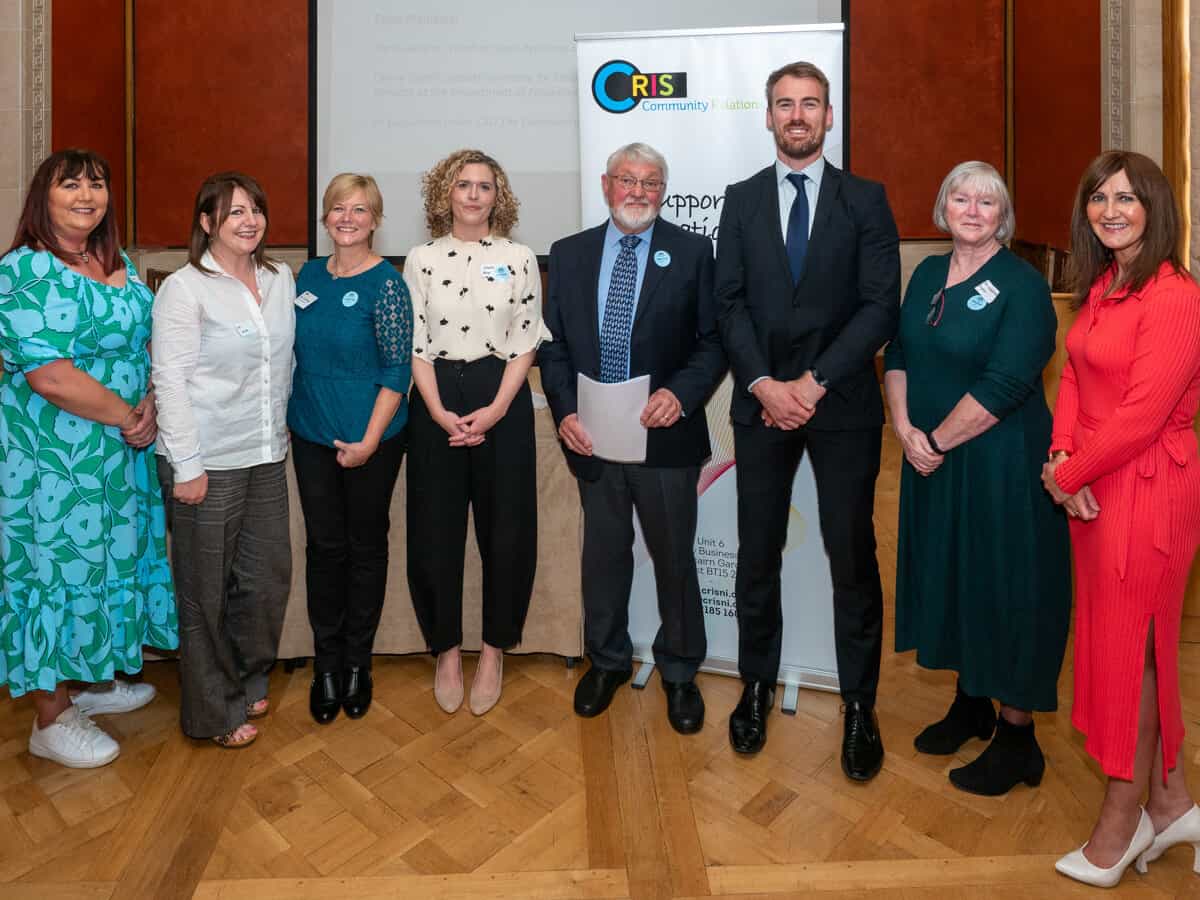On the International Day of Peace, as part of Good Relations Week, research undertaken through a partnership between the Centre for Trust, Peace and Social Relations (Coventry University) and Community Relations in Schools (CRIS) was launched. The research examines the role of trust-building in school-based reconciliation initiatives: “Trust, while taken for granted as important, has not been deeply unpacked or examined to better understand its more particular role in facilitating a move towards reconciliation,” declared the organisers, and the panel discussion event at Parliament Buildings, Belfast, was an opportunity to present key findings of the research.
Researchers provided an overview of a case study that examined CRIS’s model of peacebuilding “Good Relations and Collaborative Education” (GRACE). GRACE is put into practice through CRIS’s “whole school approach” — working with children, teachers, principals, parents, and carers to involve them in good relations programmes. One outcome of the research was the development of a set of “trust indicators” that may be utilised to gauge how collaboration facilitates a foundation of trust between participants.
The launch event was sponsored by Kate Nicholl MLA, John Stewart MLA, and Pat Sheehan MLA. Kate Nicholl welcomed the attendees and expressed gratitude for the research: “Peace is an everyday endeavour… We have come so far but there is so much to be done. CRIS’s work in schools is so important.” She was excited about the synergy between practice and research.

Lisa Dietrich (Executive Director, CRIS) kicked off the event with thanks to the researchers, Dr Emily Stanton (Programme Manager, CRIS) and Dr Charis Rice (Coventry University). She also expressed her appreciation to the team at Urban Villages and their support for CRIS’s Buddy Up project, as well as to the Community Relations Council, both for funding the research.
Dietrich said that the key research outcome for them at CRIS was learning more about how we generate trust with those they work with and why these behaviours matter: “The intangible has been made tangible! The elusive has become illuminated!”
She referenced Professor John Brewer, whose research suggested boundaries of trust are narrowed as a consequence of conflict; peace requires “leaps of trust… in order to broaden out those boundaries”, through sharing stories, space, and common experiences. Dietrich shared Brewer’s opinion that schools offer a unique location to open this door to trust-building as part of “everyday peacebuilding”. She elaborated:
“Everyday peacebuilding uses the ordinary spaces of schools, communities, and families to knit durable interdependent relationships through shared play, shared learning, and shared achievement.”
Dietrich continued that none of this is possible without trust, thus it was critical to invest time and energy to understand, nurture, measure, and take risks for trust, “because trust is the elixir that will help us move this place forward towards a more positive peace”.

Dr Emily Stanton and Dr Charis Rice gave a joint presentation of their research. Stanton began by providing a policy context of good relations and collaborative education. Trust was taken for granted as important, but hadn’t been well-defined or scrutinised as a measurement. Rice described their research methodology, consisting of reviewing existing literature and collecting data from CRIS stakeholders via interviews and a small-scale survey.

Key thematic findings of their research included safety, positive role models, openness, self-discovery, asking for help, felt trust, and social interaction.
A “Trust Indicators Framework” (TIF) was developed through a combination of analysis of the literature review and the survey data. The ambition of the TIF is to enable CRIS practitioners to tangibly capture the trust built in the relationships they facilitate, in order that the scenarios and strategies that work to do so can be replicated and “trust journeys” can be recognised, evaluated, and celebrated.
There are ten indicators in the TIF, which are not intended to be prescriptive or exhaustive, but useful as a starting point for recording trust as part of a monitoring and evaluation process:
- “I feel like I know myself better.”
- “I feel I can be my true self.”
- “I feel like I really know them.”
- “I feel cared about.”
- “I know they will keep their word.”
- “I feel I can talk openly, even about things that we are likely to have different opinions on.”
- “I can ask for help and feel confident they will try to help, without judgement.”
- “I feel trusted.”
- “I willingly make time for this relationship, or invest in it in other ways.”
- “I feel our relationship is valued.”
Dr Norman Richardson (Honorary Fellow and former Senior Lecturer at Stranmillis University College) chaired a panel discussion that included: Chris Gardner (Head of Good Relations at The Executive Office), Linsey Farrell (Deputy Secretary for Education Policy and Children’s Services at the Department of Education), and Jacqueline Irwin (CEO, Community Relations Council).

Linsey Farrell was clearly impressed with the presentation: “Why haven’t we been measuring this before?” She spoke of the challenge of evaluating trust, something that “is fundamental to any relationship at any level”. Farrell added that trust “is the bit that will make this place work”, particularly in the realm of whole community approaches to education: “We can have all of the great forums and projects in the world, but in the absence of trust, we won’t have sustainable peace [and] sustainable relationships in communities.” She added that this research moves the conversation about trust beyond the superficial to one of depth, something tangible, and saw a huge application of this research to the work of community relations.

Chris Gardner said that this research on trust should now be a fundamental aspect of a conversation on positive peace. He also remarked on its helpful timeliness, as The Executive Office is reviewing its Together: Building a United Community (T:BUC) programme, with a desire for more useful evidence gathering. Gardner spoke to the indicator of feeling trust, in terms of feeling trust in yourself and in institutions of government. The risk, to him, was having a feeling of reduced autonomy as a young person, without a sense of belonging or security: “Trust can be fleeting or eroded if a child is not given ongoing opportunities.”

Jacqueline Irwin mooted why our framework of community relations policy landscape, critical reflection, and current views and feedback matters. Firstly, she said, it is because all new policy has to contend with the aftermath of what went before. Here, she used her personal experience as a pupil of her primary school, attended by “both traditions”, being split into two: “For me, the road back to sharing or even being educated together is the road back to normal, while for everyone who came after me, it is a road to abnormal, something they haven’t experienced before.” Irwin added: “Personal experience matters… How we respond to any new opportunity is affected by everything that has happened to us before.” She concluded that this research challenges ways we measure progress and that the TIF model illustrates the interplay of past experiences; opportunities to demonstrate trust, time and context to show and receive care and benevolence; and to give [it in return].

Dr Norman Richardson moderated a panel discussion, where Farrell remarked that we can’t just work with children on their own, but as part of a wider eco-system with parents, teachers, and the wider community:
“One of the challenges we always have is the siloed way we often work when we box either people off or issues off. You actually can’t do that because that’s not how people work. It’s not how issues work. [It’s really helpful] the more that we can think of viewing good relations as being all of our jobs and each of us having a role to play in building that trust.”
Gardner spoke of the wider context of social-economic issues, such as low productivity, mental health, and poverty, with low levels of social cohesion exacerbating the issue of community relations: “For a whole-systems approach to address wider issues, we need peacebuilding across the board,” through a future Programme for Government, with trust-building reflected in all of its indicators.
Irwin reminded the audience of the current absence of a Northern Ireland Executive and the task of agreeing, funding, and delivering an agreed policy: “The challenge now is as big as it was 25 years ago… but I love it when we are naming the issue, because that is the start of finding a solution.”
During the question-and-answer session, I asked about what remedies for low levels of trust, once quantified by the TIF model. Irwin answered by outlining a “reciprocity of benefit”:
“One of the funny things about good relations work is where ‘the other’ — however you define ‘the other’ — has a problem, that is your great opportunity to be able to go in and do something, give something that actually begins to show that they’re cared about. It’s not a win for you it’s a win for them. And you cared enough to do that.”
She added that some of the early learning that came out of the multi-party talks that led to the Belfast/Good Friday Agreement was “no surprises” and talking through the issues, on the ground, before you come to a conclusion: “Some of that [which] was learnt the hard way in coming to the agreement has been forgotten since, and I think we need to go back and retrieve a lot of that.”
Rice answered that TIF identifies specific areas to address and “you can use back-to-basic activities [such as] listening and letting people feel heard”. She also cited her other research with Stanton, on a communications tookit to build trust.

Joan O’Hara (Barnados) closed the event by quoting the legendary investor, Warren Buffet, who said: “Trust is like the air we breathe. When it’s present, nobody really notices. But when it’s absent, everybody notices.” O’Hara concluded:
“Emily and Charis have done a great job of making everybody notice the importance of trust and I look forward to seeing their work develop.”
Cross-published at Mr Ulster.
Peacebuilding a shared Northern Irish society ✌️ Editor 🔍 Writer ✏️ Photographer 📸 https://mrulster.com
Discover more from Slugger O'Toole
Subscribe to get the latest posts to your email.
